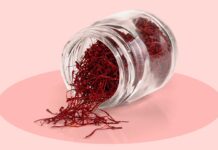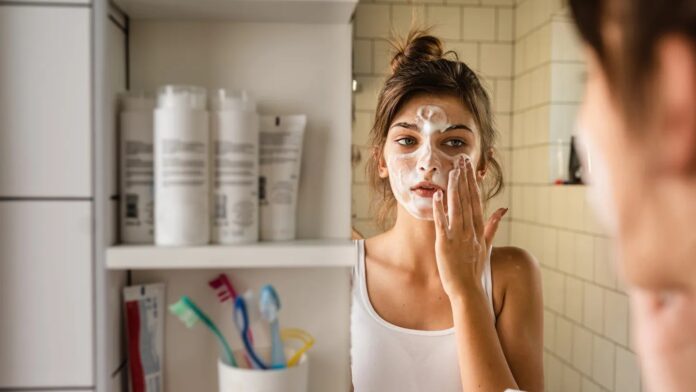Rosacea, a common skin condition primarily affecting the face, goes beyond simple redness. It can manifest as acne-like breakouts, irritated eyes, and thickened skin. While there’s no single cause for rosacea identified yet, effective treatments are continually evolving. Taking charge of your rosacea involves understanding your triggers and adopting gentle self-care practices that minimize flare-ups and keep symptoms in check.
Identifying Your Triggers: The First Step to Rosacea Management
Think of a journal as your secret weapon against rosacea flares. Regularly jot down potential triggers after meals, events, or activities where you experience redness or other symptoms. Common culprits include spicy foods, alcohol, sun exposure, extreme temperatures (both hot and cold), stress, and even certain skincare products.
“Keeping a journal can help pinpoint what might be causing your rosacea symptoms,” says dermatologist Dr. Michele Green of New York City. While avoiding all triggers is often unrealistic, knowing them empowers you to make conscious choices and minimize exposure.
When a flare-up strikes, don’t panic. Soothing self-care measures like a cool shower or gentle cleansing with rosacea-specific products can help. Remember: avoid harsh scrubbing; it only exacerbates the issue.
The Moisturizer Rule: Essential for Rosacea
Moisturizer isn’t just beneficial—it’s absolutely vital for managing rosacea. Dr. Amy Forman Taub, a dermatologist at Northwestern University’s Feinberg School of Medicine in Chicago, advises her patients with rosacea to apply it daily. Think of moisturizer as your skin’s protective barrier against irritants.
But not all moisturizers are created equal when it comes to rosacea. Opt for oil-free, fragrance-free, and hypoallergenic formulas – the simpler, the better. “Fewer ingredients mean less potential for irritation,” explains Dr. Taub.
Gentle Cleansing: Your Skin’s Rosacea Best Friend
Just as crucial as a good moisturizer is choosing the right cleanser. Harsh cleansers and astringents can significantly worsen rosacea symptoms.
“If you have rosacea, steer clear of harsh cleansers and astringents – they will make things much worse,” cautions Dr. Green. Be mindful of common acne ingredients like benzoyl peroxide: while a low concentration (5%) specifically designed for rosacea might be effective for breakouts, high concentrations can be too irritating. Retinoids and salicylic acid deserve cautious consideration as well.
Again, the “less is more” mantra applies here. Look for fragrance-free and hypoallergenic options, and remember: gentle cleansing means no scrubbing.
Facial Treatments: Proceed With Caution
While facials may benefit others, they can be counterproductive for rosacea-prone skin. Chemical peels, microdermabrasion, or even standard facials can irritate the already sensitive skin, exacerbating rosacea. If you crave rejuvenating treatments, collaborate with your dermatologist to explore gentler alternatives like lactic acid or mandelic acid peels – but always get their professional guidance first.
Makeup Matters: Choosing Rosacea-Friendly Formulas
Concealing ruddy cheeks might seem tempting with makeup, but certain formulas can worsen rosacea symptoms. Dr. Taub recommends fragrance-free mineral-based makeup as the safest bet. Pressed powder foundations are generally preferred over liquid ones, as liquids tend to clog pores and aggravate rosacea. When in doubt about a product’s suitability, consult your dermatologist for personalized advice.
Sun Safety: Your Rosacea’s Number One Enemy
The National Rosacea Society reports that sun exposure tops the list of triggers for rosacea, with 81% of respondents experiencing flares after sun exposure. Sunscreen is not just good practice; it’s essential for managing rosacea. Choose physical blockers like zinc oxide or titanium dioxide, as chemical sunscreens can be irritating to sensitive skin.
Always apply generously and reapply frequently when out in the sun. Remember: wide-brimmed hats and seeking shade are equally vital components of your sun safety plan.
When Flares Occur: Cooling Down the Heat
Flare-ups are inevitable with rosacea, but there are soothing steps you can take to ease discomfort. Applying ice packs wrapped in a towel for short periods can help calm inflammation, says Dr. Taub. Green tea extracts also possess soothing properties. Just remember to test temperature carefully on sensitive skin and avoid anything hot. Work closely with your dermatologist to develop a personalized flare management strategy, including specific rosacea-friendly skincare products that might be beneficial.
Beyond Self-Care: Seeking Professional Guidance
While self-care practices play a crucial role in managing rosacea, consult a dermatologist for comprehensive care. There is currently no cure for rosacea, but treatment options are increasingly personalized based on individual symptoms. Topical medications like creams, lotions, and gels, as well as oral medications, can effectively reduce inflammation and redness. For those experiencing breakouts or bumps, topical and oral antibiotics may be recommended.
In cases of persistent redness, dilated blood vessels, or changes in the nose and cheeks, your dermatologist might suggest light therapy treatments or even surgical procedures like laser treatments. Don’t hesitate to seek professional guidance for personalized advice on managing your rosacea effectively.


































